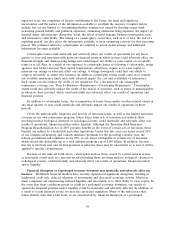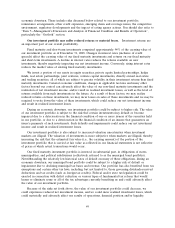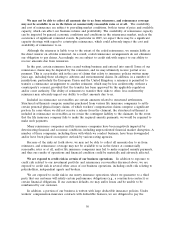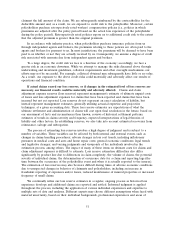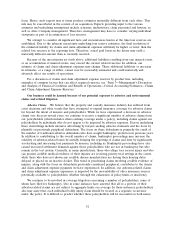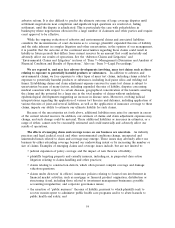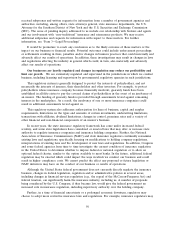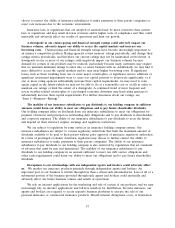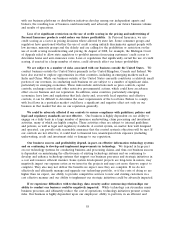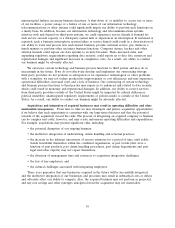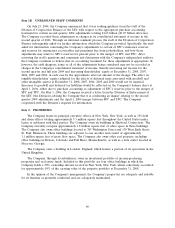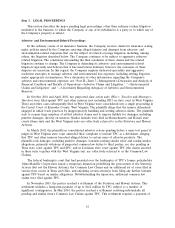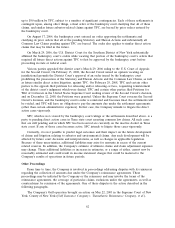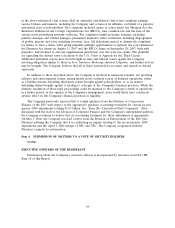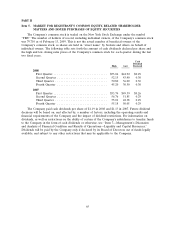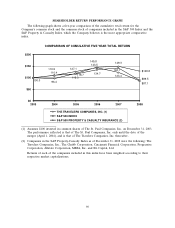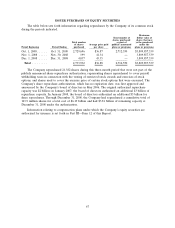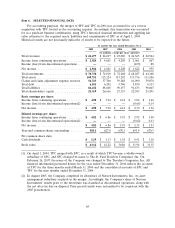Travelers 2008 Annual Report Download - page 70
Download and view the complete annual report
Please find page 70 of the 2008 Travelers annual report below. You can navigate through the pages in the report by either clicking on the pages listed below, or by using the keyword search tool below to find specific information within the annual report.with our business platforms or distribution initiatives develop among our independent agents and
brokers, the resulting loss of business could materially and adversely affect our future business volume
and results of operations.
Loss of or significant restriction on the use of credit scoring in the pricing and underwriting of
Personal Insurance products could reduce our future profitability. In Personal Insurance, we use
credit scoring as a factor in pricing decisions where allowed by state law. Some consumer groups and
regulators have questioned whether the use of credit scoring unfairly discriminates against people with
low incomes, minority groups and the elderly and are calling for the prohibition or restriction on the
use of credit scoring in underwriting and pricing. In August of 2008, for example, the Michigan Court
of Appeals ruled to allow state regulators to prohibit insurers from using customers’ credit scores to
determine home and auto insurance rates. Laws or regulations that significantly curtail the use of credit
scoring, if enacted in a large number of states, could adversely affect our future profitability.
We are subject to a number of risks associated with our business outside the United States. We
conduct business outside the United States primarily in the United Kingdom, Canada and Ireland. We
have also started to explore opportunities in other countries, including in emerging markets such as
India and China. While our business outside of the United States currently constitutes a relatively small
portion of our revenues, in conducting such business we are subject to a number of significant risks,
particularly in emerging economies. These risks include restrictions such as price controls, capital
controls, exchange controls and other restrictive governmental actions, which could have an adverse
effect on our business and our reputation. In addition, some countries, particularly emerging
economies, have laws and regulations that lack clarity and, even with local expertise and effective
controls, it can be difficult to determine the exact requirements of the local laws. Failure to comply
with local laws in a particular market could have a significant and negative effect not only on our
business in that market but also on our reputation generally.
We could be adversely affected if our controls to ensure compliance with guidelines, policies and
legal and regulatory standards are not effective. Our business is highly dependent on our ability to
engage on a daily basis in a large number of insurance underwriting, claim processing and investment
activities, many of which are highly complex. These activities often are subject to internal guidelines
and policies, as well as legal and regulatory standards. A control system, no matter how well designed
and operated, can provide only reasonable assurance that the control system’s objectives will be met. If
our controls are not effective, it could lead to financial loss, unanticipated risk exposure (including
underwriting, credit and investment risk) or damage to our reputation.
Our business success and profitability depend, in part, on effective information technology systems
and on continuing to develop and implement improvements in technology. We depend in large part
on our technology systems for conducting business and processing claims, and thus our business success
is dependent on maintaining the effectiveness of existing technology systems and on continuing to
develop and enhance technology systems that support our business processes and strategic initiatives in
a cost and resource efficient manner. Some system development projects are long-term in nature, may
negatively impact our expense ratios as we invest in the projects and may cost more than we expect to
complete. They also may not deliver the benefits we expect once they are complete. If we do not
effectively and efficiently manage and upgrade our technology portfolio, or if the costs of doing so are
higher than we expect, our ability to provide competitive services to new and existing customers in a
cost effective manner and our ability to implement our strategic initiatives could be adversely impacted.
If we experience difficulties with technology, data security and/or outsourcing relationships our
ability to conduct our business could be negatively impacted. While technology can streamline many
business processes and ultimately reduce the cost of operations, technology initiatives present certain
risks. Our business is highly dependent upon our employees’ ability to perform, in an efficient and
58


